We have to stop supporting industries that are bad for society
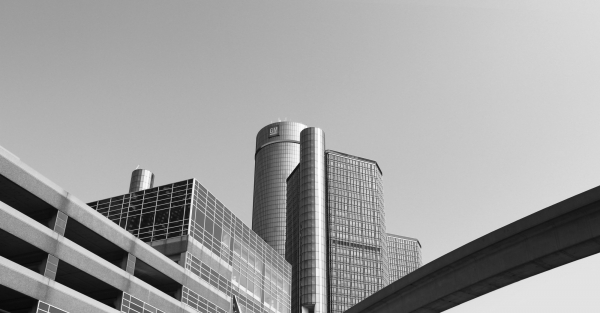
Cookie-cutter homes with brilliant green lawns. A car in every driveway. A mother, father, a couple kids, and a family pet. These are the images we associate with the postwar boom — the “golden age of capitalism,” as some call it — in large part due to factory jobs which didn’t require a university degree, but still paid a wage on which a man could support his family (thanks to the strength of labor unions).
North American automotive companies — GM, Ford, and Chrysler — are strongly associated with this period of shared prosperity and the mythos of the American Dream. The cars in the driveways that made suburban life possible were tagged with their brand names, and a lot of men worked in the factories making their vehicles and personally identifying themselves with the company they gave decades of their lives to.
In order to support this growing industry, governments across North America and the larger Western world subsidized infrastructure to promote suburbanization and the use of automobiles instead of bikes or public transportation, causing a mass (white) exodus from the urban core. Streetcar tracks were pulled up and transit systems suffered as the users that mattered to the political class fled to the suburbs and drove their own cars.
Decades later, we can see the impacts of these policies. Roads and bridges are in a state of dire disrepair because they cost too much to maintain at a time when governments are starved of funds after decades of successive tax breaks to corporations and wealthy individuals. Our auto-dominated transportation system contributes a significant amount of carbon emissions to the atmosphere and tens of thousands of people are killed by cars driven by humans every year in the United States alone.
The need for change is clear, and it was made even more so by GM and Ford’s recently announced restructuring plans. They’ve received billions in direct and indirect government support over the decades and benefited from their positive historical associations, but we can’t keep propping up companies whose products are so deadly and environmentally destructive. We need to start supporting the industries for the future, and for that we need a Green New Deal.
We Can No Longer Justify the Drawbacks of Automobility
The bailout of auto companies, subsidies for new vehicle purchases, infrastructure that was necessary for the car to become the ultimate means of transportation and image of freedom in the second half of the twentieth century; these are just some of the investments that governments made to support the auto industry, only to have them turn around when subsidies expired to shut down plants or move to other jurisdictions.
As part of GM and Ford’s restructuring plans, thousands of people will lose their jobs, plants will close in Canada and the United States, and a number of sedans will no longer be built for the North American market. Instead, the companies will refocus on trucks and SUVs, whose sales have been increasing over the past decade, but that trend comes with consequences. There was also some talk of electric and autonomous vehicles, when even Waymo is backing away from its previous comments.
Counter to the trend in most developed countries, pedestrian deaths are increasing in the United States in large part because there are more SUVs on the road. Between 2009 and 2016, the number of fatal pedestrian deaths by SUVs increased by 81 percent, yet the number of SUVs on the road increased on 37 percent.
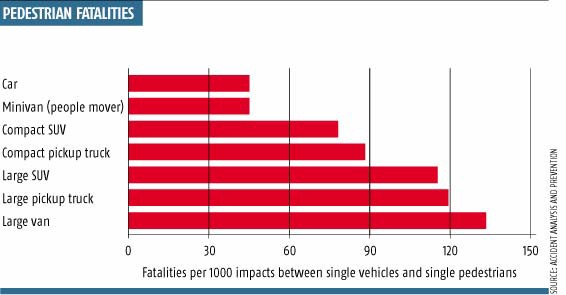
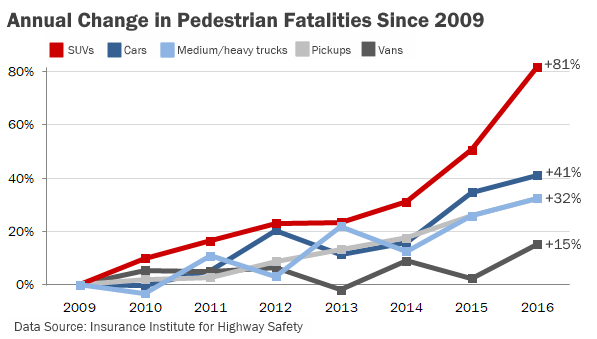
This disparity comes from the fact that people are more likely to die when hit by an SUV than by a regular car. Since SUVs are “heavier, stiffer and geometrically more blunt,” there’s a much greater risk of “serious head and thoracic injury” than if a person is struck by a car. Ultimately, this means that a person hit by an SUV is about twice as likely to die and someone hit by a large van is three times more likely to die than if they were hit by a car.
An estimated 40,000 people died in vehicle collisions in 2017 — more than the number who died from firearms — and an additional 53,000 are estimated to die prematurely from tailpipe emissions. Those emissions are also a significant contributor to climate change.
In the United States, transportation is the largest emissions sector, accounting for 28 percent of the country’s total in 2016. Given that the IPCC recently released a report saying that global emissions need to be cut 45 percent by 2030 to avoid warming of 1.5ºC (2.7ºF), those emissions need to be tackled. That means the government can no longer support an industry whose products kill tens of thousands people every year and are major contributors to climate change, and the restructuring plans provide even more ammunition for change.
The Government Has An Important Role in the Transition
In the 1960s and 1970s, the US federal government was moving forward with plans to put a lot more money into public transportation, but that support was slashed when Ronald Reagan took office, allowing the automobile to continue to dominate for decades longer. However, a serious commitment to changing the way we move needs to be resurrected, and the Green New Deal promoted by Congresswoman Alexandria Ocasio-Cortez and other democratic socialists presents the perfect opportunity.
The auto companies had a lot of goodwill because people realized that they provided good jobs with decent pay, pensions, and benefits packages — they made the American Dream achievable in a way it isn’t today. However, as more manufacturing jobs are automated or sent to Mexico and wages and benefits are reduced, auto companies don’t have the clout they once did — but that doesn’t mean there aren’t ways to provide people with great jobs in transforming our transportation, energy, and other systems to make them more sustainable.
A Green New Deal could support new industries to build the electric buses, electric bikes, solar panels, wind turbines, and other products that will be necessary for a rapid transition to a carbon-neutral society. The plants being abandoned by GM could be retooled to build the energy and transportation systems of the future, creating jobs for former auto workers (and many others) making products that will have a net benefit for our society, instead of ones with the destructive effects of automobiles.
We need to get over the false notion that the government should leave everything to the market. It has never done so, and never will, because public financing and support plays a key role in moving society forward. In a piece about the failure of Australia’s car industry, Australia Institute’s chief economist Richard Denniss reflected on the language politicians use when they hand out public money:
your friend’s big new idea simply needs some “infrastructure support”, while your foes need subsidies for their “financially unviable” projects. … Your friends need a “competitive tax environment” and your foes want protection because they can’t compete on a level playing field. Your friends create jobs, while your foes need to become more productive (by employing fewer people). And so on.
If you think about the Republicans, they talk a lot about the problems with “big government,” but are more than happy to hand out funds to support coal mining and other dirty industries while criticizing support for renewables. Former Republican Governor Scott Walker’s incentives to attract Foxconn to Wisconsin could end up costing the state $4.8 billion — so much for small government.
Public Investment Should Create Public Value
Economist Mariana Mazzucato has written a lot about the role of the government in fostering innovation and creating public value. She says that we see the government all wrong, and that when we ascribe genius status to tech billionaires we miss the role of workers and the support provided by the government to make their businesses and products possible.
Both Denniss and Mazzucato point to Elon Musk, who got $5 billion in public subsidies to help grow his businesses, yet positions himself as a self-made entrepreneur. The government often invests in companies at an early stage, long before venture capitalists would look at them, and Mazzucato criticizes how the government eats the losses, but doesn’t get any of the profits.
If you’re going to give Tesla a $465 million guaranteed loan — which is just a bit less than they gave Solyndra — why should taxpayers come in to save Solyndra because the loan was guaranteed, and not get a share of Tesla’s rewards from the same loan? If government is going to be an active innovator and co-creator of value, then why not really set those investments up as a proper portfolio? No venture capitalists would think of doing what the government does, which is just to take on the downsides without getting a share of the upsides. Getting a share of the upside isn’t just to line the pockets of bureaucrats. Any VC guy will tell you that it’s inevitable to fail along the way to success, and you have to be able to fund both.
The age of the automobile is coming to an end, and the government has a role in funding the transition to the sustainable future that we’ve been delaying for far too long. As automakers are shrinking and laying off skilled workers, they create the perfect opportunity to retool factories and put people back to work building the products that will be necessary for more sustainable transportation and energy systems.
A Green New Deal could be the means to invest in the new industries that will be essential for the transition and creates millions of decent-paying jobs across the country. Climate change is framed as a job killer, but few are benefiting from the status quo. A green transition is exactly what’s needed to give the economy a sustained boost, put people back to work, and avoid the worst possible outcomes presented by climate change. GM and Ford can adapt or die — we don’t need them anymore.




















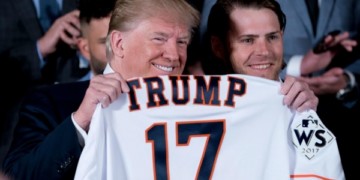
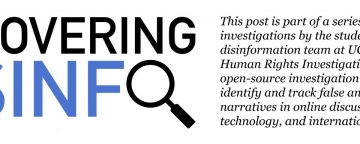




Connect with us